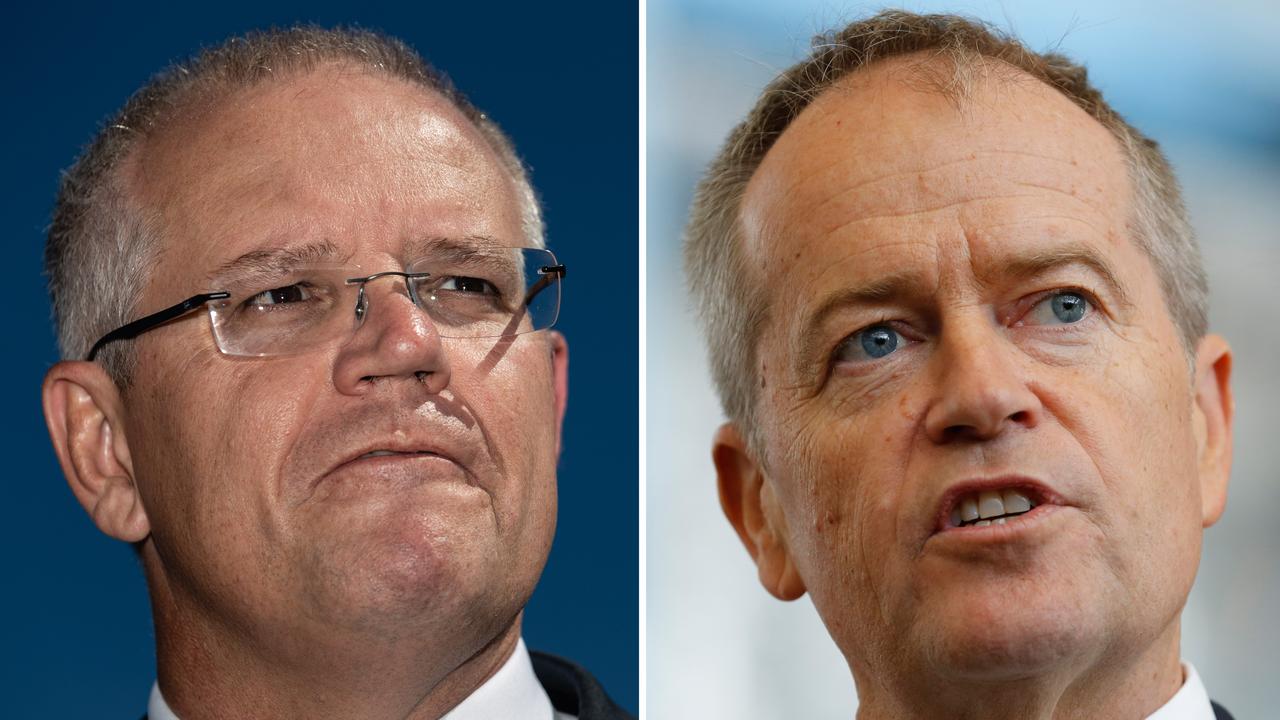Matthew Abraham: When death and taxes aren’t so certain
In an election campaign, memories are the political equivalent of improvised explosive devices, prone to go off when least expected, wreaking random havoc — explaining why political parties keep them under lock and key, says Matthew Abraham.
Opinion
Don't miss out on the headlines from Opinion. Followed categories will be added to My News.
MEMORY is the strange little box in the brain that safely stores your mum and dad’s first telephone number but loses your car keys. Our family telephone number was just one digit removed from the number for the Unley police station. So we’d take some interesting calls on the olive green rotary-dial handset that sat in a dimly lit cubby, built into the linen press, just outside the bathroom.
I can remember not just the phone number but the smell of clean flannelette sheets and Cusson’s Imperial Leather soap.
In an election campaign, memories are the political equivalent of improvised explosive devices, prone to go off when least expected, wreaking random havoc. It’s why political parties keep them under lock and key.
During the week, the Liberal Party spectacularly sharpened its tax attack on Labor Leader Bill Shorten, warning the ALP would bring in a death tax – or inheritance tax – if elected.
At first, the death tax scare was running beneath the radar on social media but by Tuesday it was a proper Liberal-authorised advertisement, morphing Shorten’s “Labor has never had any plans for a death tax under my leadership” with former Labor PM Julia Gillard’s “There will be no carbon tax under the government I lead”.
It’s the outer limits of a punchy attack line running against Shorten as “The Bill Australia can’t afford”.
Labor has fired back with an audio grab of Prime Minister Scott Morrison, when Treasurer, saying “We’re not ruling anything in or ruling anything out” when pressed by broadcaster Neil Mitchell to rule out a death tax.

The inheritance tax attack on Shorten isn’t fair, just as his “Mediscare” campaign against the Liberals in the 2016 federal election wasn’t fair. This is an election campaign, not Woodstock.
But you don’t have to dig too deep to find death tax memories that the ALP would rather we all forgot.
On March 7, 2006, Labor’s Andrew Leigh, then economics professor at the Australian National University in Canberra, wrote a cheery article for New Matilda titled “Bring Back the Inheritance Tax”, outlining a “millionaire’s inheritance tax”.
His “modest proposal” was to apply a five per cent tax on estates above a $1 million threshold, rising to 15 per cent on inheritances over $2 million.
His tax on the “super rich” would be indexed, to avoid catching “ordinary Australians” as happened with the abolished 1970s tax. His inheritance tax would include all gifts given in the 20 years before death, except to charities, “so the super rich cannot bypass the tax”.
In the same year, he also co-authored a study with Melbourne University economist Professor Joshua Gans, looking at how many people prolonged their lives to avoid paying the federal death tax before it was scrapped by John Howard on June 30, 1979.
An estate worth more than $1 million would have been taxed at the then 28 per cent if the owner died on June 30, 1979, but zero if he or she died on July 1, 1979. They calculated about 50 people “cheated death for long enough to avoid the tax”. Hilarious.
Leigh has a brain the size of a small planet. He’s Labor’s shadow assistant treasurer, a heartbeat away from treasurer if Labor wins on May 18. He now consistently says his death tax advocacy was as “an academic floating ideas”, it’s now dead and buried and to suggest otherwise is “a lie, pure and simple”.
Maybe they’ve thrown away the death tax key, although you only have to look at the aggressive way Labor senator Kristina Keneally bags people who she believes don’t deserve franking tax credits to realise that intergenerational envy can unlock many a box. In case of emergency, break glass.
And bless reader Charles Greeneklee, of Athelstone, who wrote last week challenging my happy Wolseley 4/44 memories from TV’s Father Brown. He said the police never drove 4/44s, but instead drove the larger 6/80 model.
Nope. The Father Brown fuzz drove 4/44s, notably Inspector Sullivan – number plate CEJ978 – and the 6/80s, too, in earlier episodes.
This isn’t fake news. Just as the only certainty in life is death and taxes, it’s a fact.




